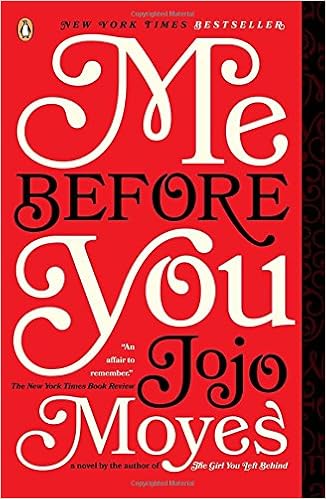Secret Shopper
When
I first walked into the adult section of the small branch library I visited, I
noticed one librarian at the reference desk.
I did not see any readers’ advisory signs or booklists. The only display was of new books. I browsed a little bit and then walked up to
the reference desk. The librarian was
working on something and seemed a little irritated. He hesitated a moment and then said, “How can
I help you?” I told him that I was
looking for a good book to read. He
then asked me, “What do you like to read?”
At
this point I was anticipating a conversation about books, what I liked to read,
and hopefully finding a new title to read:
“For many avid readers, talking about books is an enjoyable experience
in itself and an extension of the pleasurable reading experience. Therefore, the soul of a readers’ advisory
interview is the talk about books” (Ross, C., Nilsen, K., Dewdney, P., 2002). I told him I had recently read Me before You by JoJo Moyes and I really
enjoyed it. He pulled up Novelist and
then selected the read-alikes. He did
not ask me any questions or converse with me at all. Next, he told me that I could do this myself
over on the computers by the desk but did not offer to offer any assistance
with Novelist. He then said, “Do you
want me to print this list or do you want to go over and look this up over
there?” I felt like I was being
dismissed. I just said that would be
great if he could print it out for me. I
was given a list of 9 read-alikes for Me
Before You. He resumed working and
did not offer to see if any on the list sounded interesting to me or see if
they had them in stock.
I
was really disappointed in my experience at this library branch. The librarian made me feel like I was
inconveniencing him by asking for assistance and that I should have been able
to do this myself. I am lucky to work in
an Adult Services department that is well-staffed and when working at the
public Reference desk, I am able to give my full attention to customers when
they approach. If I have something time
sensitive or detailed, I am usually able to work on that in the back
office. I understand that not all
librarians are in this situation.
However, the primary purpose of libraries is to serve the public and
that should always be the top priority.
Personally, I would not request assistance from him in the future and if
I was a new library patron, I might not return to that branch. Further, I think it is good to make the
public aware of the databases and tools that are available to them and
familiarize the public with how to use them.
However, I was not offered any assistance or guidance in how to use the
database. The librarian did not really
talk or listen to me. He provided very
minimal assistance and was very dismissive of my request. Sadly, I do think he had at least some readers’
advisory training but did not have time to offer quality service. He pulled Novelist up right away, but just
did not take the time to converse with me or offer much assistance even though
there were no other patrons in need of assistance. I had the same experience Chelton describes
in her research: “Most of the public
librarians encountered by the MLS students had no idea how to conduct a readers’
advisory interview, a remarkably simple process. Ask the reader what he or she liked about the
book that inspired the query, and then follow up by asking if the reader is in
the mood for something similar or perhaps something different.” (Chelton 2003).
In
addition, I expected at least some type of question about the appeal of Me Before You. There were no questions about what
appealed to me about that particular book or what I liked about it. The librarian just went straight to the
read-alikes and then did not even talk about them with me, he simply printed
them out and ended the transaction. As
Saricks notes: “We have found that most
readers are usually not looking for a book on a certain subject. They want a book with a particular “feel”. As we work with readers in libraries, drawing
on both fiction and nonfiction collections, it very quickly becomes clear that we
need to understand both subject headings and appeal characteristics if we
really want to serve readers.” (Saricks 2005).
While
I understand the stress of having deadlines while at the same time working the
reference desk, I think that serving the patrons of the library needs to be the
utmost priority. I felt like I received
minimal assistance while there were no other patrons currently needing
assistance. I did not have a readers’ advisory
interview at all and the librarian simply looked up a few read-alikes and
printed them off for me. I understand
the difficulties of providing good readers’ advisory assistance and often feel
insecure about my own ability to give good readers’ advisory service (hence, I
am taking this course) but I feel like, regardless of the situation, patron
service should always be given top priority.
References
Ross, C.S., Nilsen, K., &
Dewdney, P. (2002). The Readers’
Advisory Interview. In the Reference
Interview (pp. 163-175). New York: Neal-Schuman.
Saricks, J. (2005). Articulating a Book’s Appeal. In Readers’ Advisory Service in the Public
Library. Chicago: ALA. pp.40-73.

